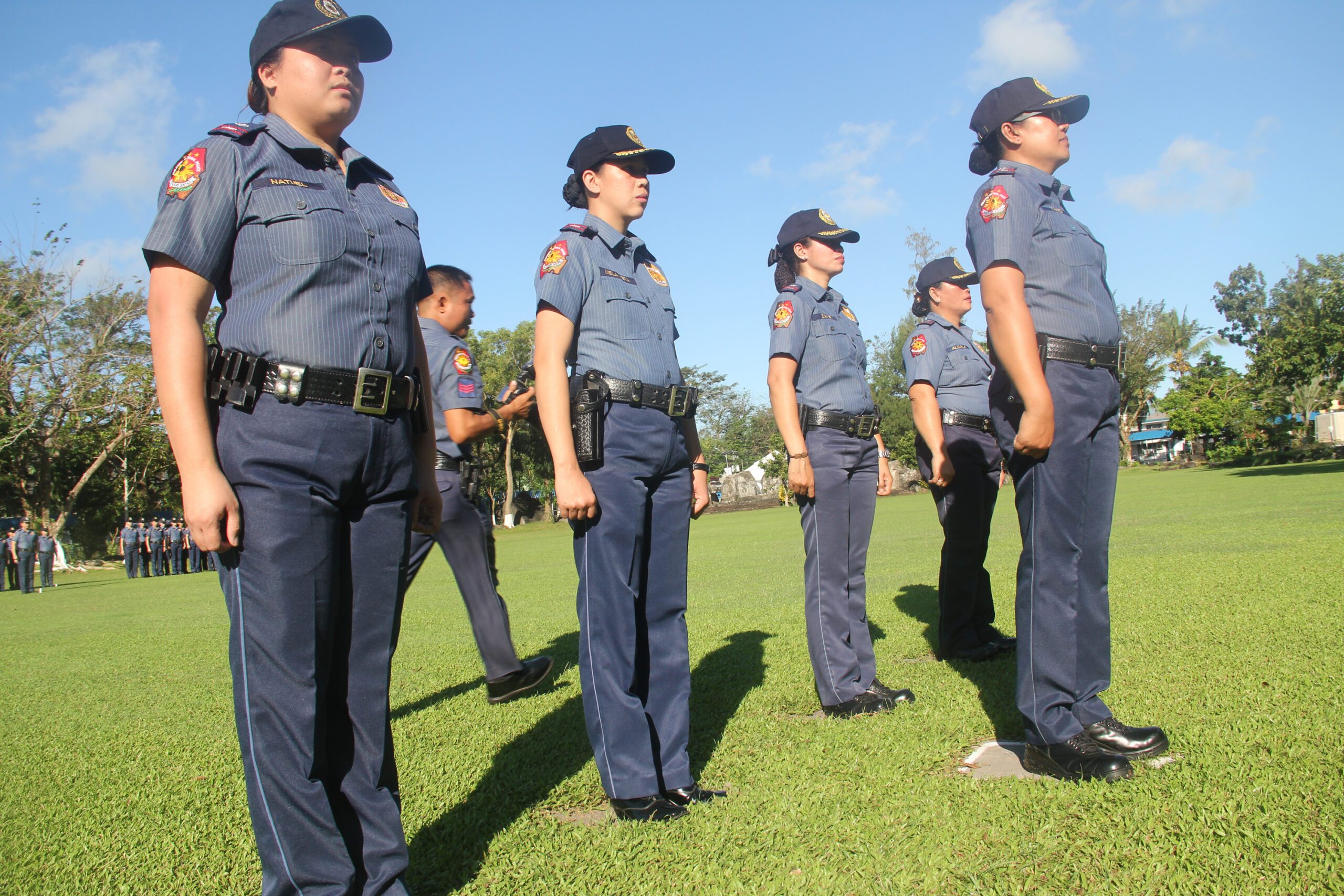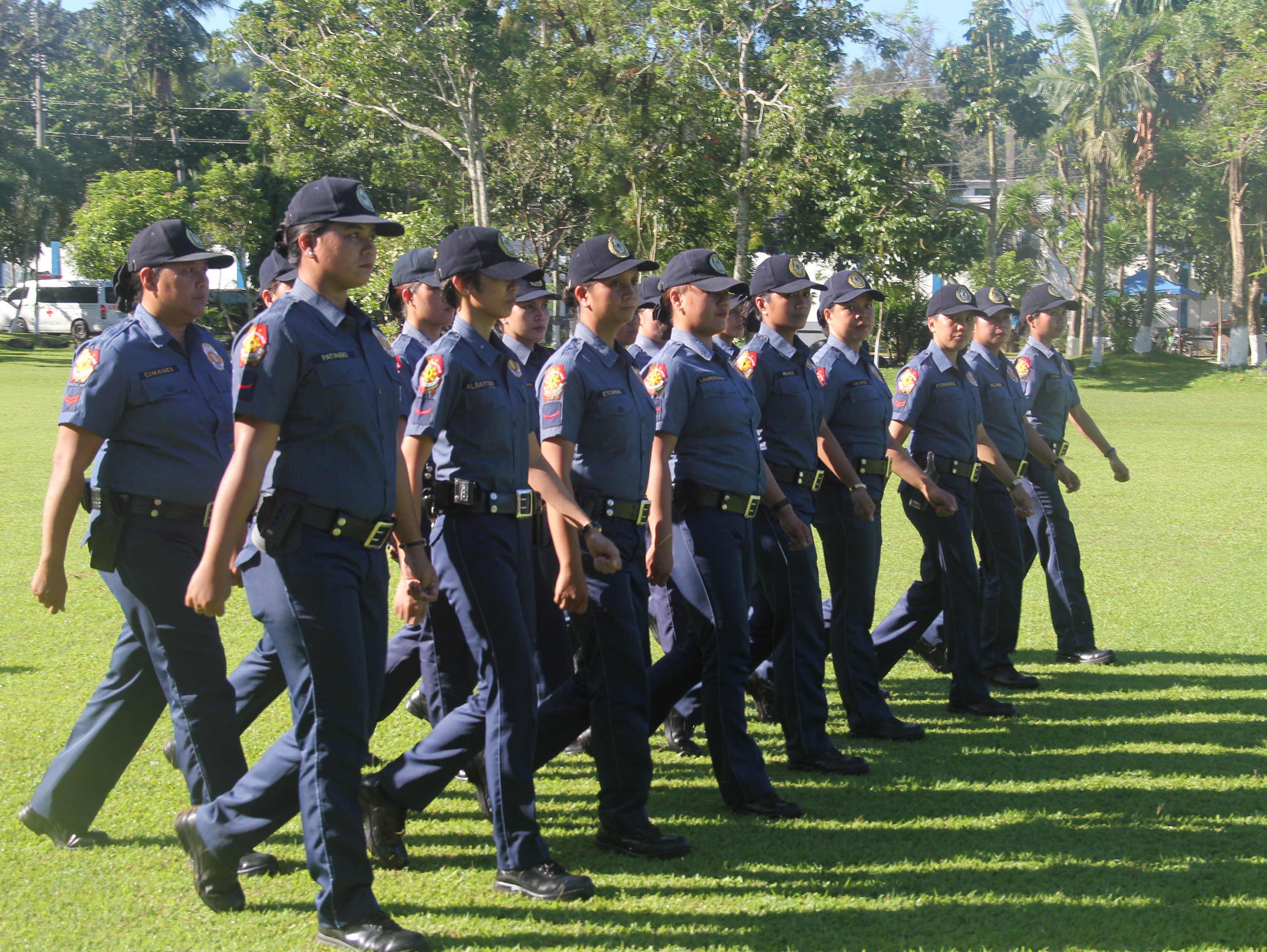SUMMARY
This is AI generated summarization, which may have errors. For context, always refer to the full article.

LEGAZPI, Philippines – As the country marks National Women’s Month, the Philippine National Police (PNP) Regional Office in Bicol paid tribute to its female officers for their contributions to the police force.
In a ceremony at Camp General Simeon A. Ola in this city on Tuesday, March 8 – also International Women’s Day – PNP Bicol Deputy Regional Director for Administration Senior Superintendent Romulo Esteban led a ceremony to celebrate the accomplishments of their female cops.
PNP Bicol spokesperson Maria Luisa Calubaquib said that 1,426 or 19% of the region’s 7,524-strong police force are women.
Forty-four of the women are police commissioned officers (PCOs), while 1,382 are police non-commissioned officers (PNCOs).
“Several of our PCOs are handling sensitive positions as chief of police in challenging towns. In big cities of Bicol [they] equally stand out with their male counterparts,” Calubaquib said.
Albay province alone has 5 female police chiefs:
- Superintedent Lea Supelana (Ligao)
- Superintendent Liane Van De Velde (Tabaco)
- Superintendent Paz Magistrado (Daraga)
- Senior Inspector Roseleen Vasquez (Malilipot)
- Chief Inspector Marianne Fernandez (Pio Duran)
The remote town of Pio Duran is a rebel stronghold, making Fernandez’s job even more challenging. Illegal fishing in the Burias Pass is also a major problem.
Two other female cops in the Bicol Region are police chiefs as well:
- Senior Inspector Mary Ann Arceo (San Jacinto, Masbate)
- Senior Inspector Maria Cecilia Zuñiga (Bato, Camarines Sur)

‘They’ve come a long way’
Dolores Laguilles, a professor from Bicol University and a longtime women’s rights advocate, said that women in law enforcement have come a long way despite the barriers that they have to confront both at home and in the workplace.
“To belong to an organization that is predominantly male is difficult. Prejudice still does exist among male colleagues and superiors when [female cops] are perceived as less capable, and [they] deal with some superiors who harbor antiquated notions of gender equality,” she said.
Laguilles added that female police officers play a critical role in addressing sexual and gender-based violence which disproportionately affect women and children.
“You are admirable on the streets and are credited with employing more effective tactics that have precluded the need for physical altercations. You have a tendency to be more effective in the area of oral and physical communications that compensates for your disadvantages in the area of physical strength,” she noted.
“Truly, it is a tough job… I give my salute to all the women in law enforcement,” Laguilles added.
In keeping with the theme of the country’s 2016 celebration of National Women’s Month, “Kapakanan ni Juana, Isama sa Agenda!”, Laguilles hopes that the country’s next president will address the issues of women in uniform and protect the rights of women across the Philippines. (READ: From Malacañang to the streets, women are demanding better lives) – Rappler.com
Add a comment
How does this make you feel?
There are no comments yet. Add your comment to start the conversation.